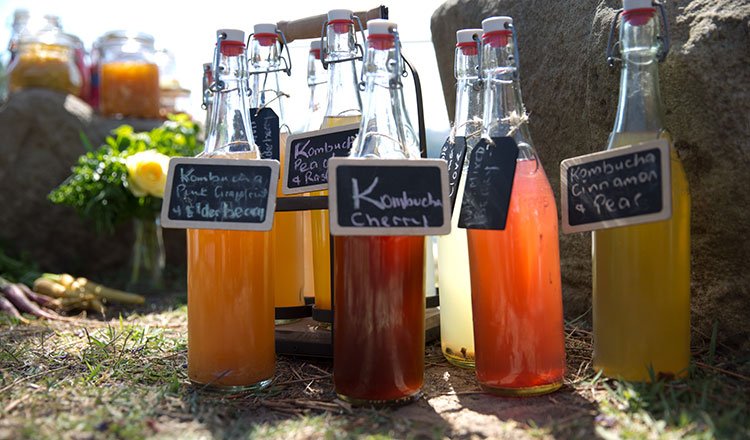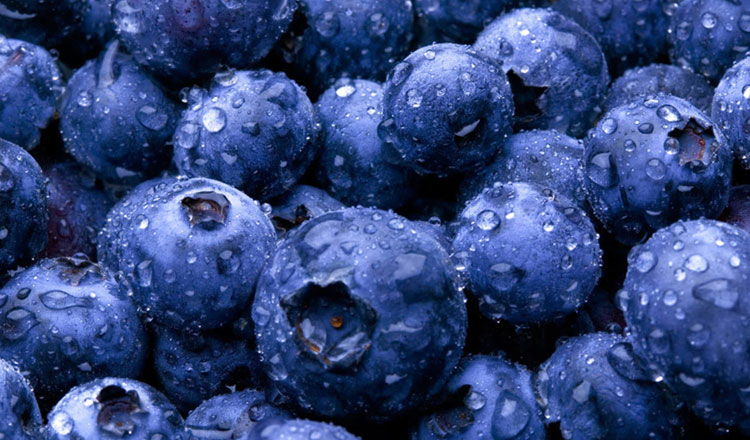As the editorial director of A Wholefood Lover’s Guide to Sydney, I get excited when I see something that has its roots in the wholefoods movement suddenly everywhere.
2014 saw almond milk become more widely available, and everyone was swapping sugar for raw honey and blending avocados and cacao into desserts you could eat guilt-free for breakfast. ‘Wholefoods’ is an eating philosophy that takes us back to the days before industrialization and the mass production of food for convenience.
It’s not Paleo, vegetarian, raw or vegan. A wholefood diet is more focused on where food has come from and how it has been processed than carbohydrate and fat count or the exclusion and inclusion of major food groups. With an emphasis on organic, sustainable and natural processing methods, the staples of a wholefood diet are grass-fed meats, bone broth and fermented foods like home-made sauerkraut and yoghurt.
Here are five trends I can already see going mainstream in 2015:
Kombucha
If 2014 saw the term “fermented vegetables” entering mainstream vocabulary, 2015 is going to be all about kombucha. Kombucha is a probiotic-rich drink made by adding a bacteria and yeast colony to cold tea sweetened with sugar. Over time, the colony ferments the tea to make kombucha.
Just two years ago, you would have been hard-pressed to find kombucha anywhere outside of a wholefood grocery store. Earlier this year, more kombucha brands entered the market and suddenly any health-focused cafe worth a grain of pink Himalayan salt started putting it on the menu. Recently I had the pleasure of spending a morning with fermentation expert and founder of Cultured Artisans Gillian Kozicki. Gillian said there was a marked rise in interest in her kombucha workshops in the latter half of 2014.
“Some people are coming to class specifically to learn how to make it at home,” Gillian says. “Most don’t realise how simple it is and how cheap compared to the cost of buying it.”
Cold drip coffee
Not to be confused with iced coffee, cold drip coffee is made by slowly dripping cold filtered water through roasted and ground coffee, for up to 24 hours. The result is a less bitter, sweeter coffee with lower acidity. In short, it’s a smooth, cold long black.
Dino Demetriou is a barista and trainer of 8 years for the global mobile coffee concept Cafe2U. Dino says he’s observed the popularity of cold drip slowly make its way from the UK to Australia this year, and as temperatures rise, it’s going to spread from specialty coffee houses to your regular run-of-the-mill café.
“Cold drip allows more focus on the coffee beans used, where they come from, the flavours they offer, as well as freshness, which is becoming increasingly important to people,” Dino says. “Cold drip offers people the opportunity to geek out over coffee, which is always welcome in coffee enthusiast circles.”
Cold drip coffee has gained a natural association with wholefoods because of its emphasis on the source of the beans and its avoidance of harsh heating in favour of a gentle and natural processing method.
Beekeeping
Forget dogs, cats and birds – with more people cottoning onto the health benefits of raw honey this year, backyard beekeeping is going to be de rigueur in 2015.
Sustainable living educational organisation Milkwood Permaculture offers one of the few small-scale beekeeping workshops in Sydney. Milkwood director Kirsten Bradley says the organisation will increase its number of workshops in 2015 and also offer workshops in Byron Bay to meet demand.
“It’s super encouraging to see more and more folks getting involved with natural beekeeping, as it’s such a pleasurable and useful way to contribute and connect to our world,” Kirsten says. “Hopefully the future of beekeeping belongs to 60,000 backyard beekeepers with a hive, not to a few huge apiaries with 60,000 hives.”
Food labeling of a different kind
Sure, we’ve all grown accustomed to flipping over commercially processed and packaged products to check the ingredient list and nutrient count, but how much do we think about where our meat, fruit and vegetables come from?
In 2015, we’re going to start caring big time as the terms ‘seasonal’ and ‘local’ take on new meaning for consumers. It’s only a matter of time before consumers start demanding the right information to help them choose seasonally and locally.
This year, wholefood grocer Aboutlife recognized the growing demand for more knowledge about the source of its produce and began to include information such as certification authority, grower’s number and growth region. It won’t be long before other grocers follow suit.
“We believe it is very important to credit the grower,” says Vladia Cobrdova, Aboutlife group general manager and wellness ambassador. “Whether a small Sydney-based organic salad grower, or the largest certified organic banana grower in Far North Queensland, these people have done an amazing job to work with nature and the environment to get produce into our stores, and food on your plates They should be further recognized. A name on a shelf ticket is a small but important part of this credit and recognition.”
Farm yard tours
Put on your gumboots and round up the kids because you’re going to be swapping weekends spent at the movies guzzling soft drink and choc tops for lessons in ethical animal husbandry.
Many pasture-raised farms already offer guided tours to show people how they care for their livestock and how it makes its way onto our plates. More farms will open their doors in 2015 in response to growing concerns about where our food comes from, and a visit to the farm will become a very normal thing to do for both adults and kids.
What are some of your own health trend predictions for 2015? Tell us below!…











